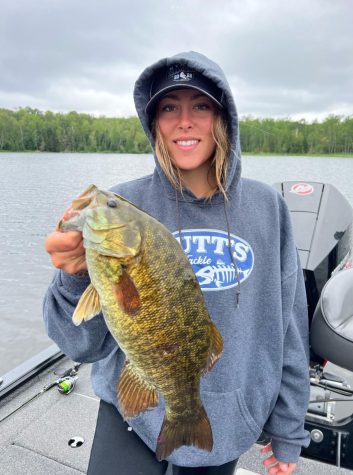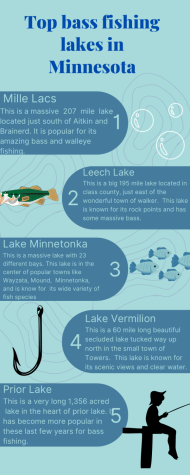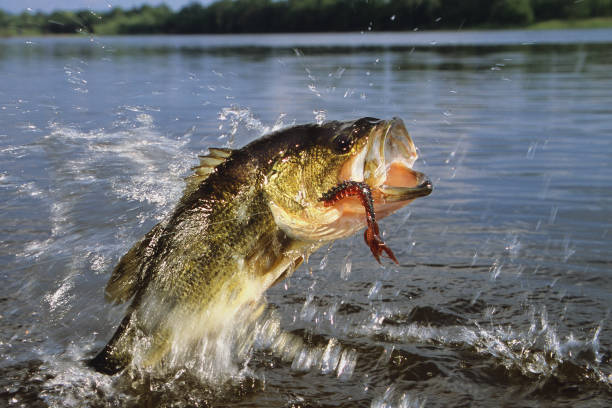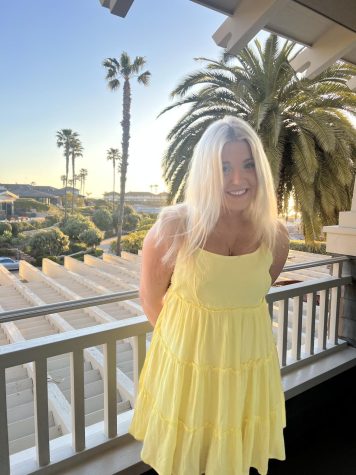Fishing in Minnesota
bass fishing with Bass Pro Shops Crayfish
April 25, 2023
A day in the life fishing edition
When it comes to fishing, the days are extremely long. In Minnetonka fishing team member Aiden Rollings average day fishing, he wakes up at 5:30am to get the boat launched and ready for a long day. On tournament days this time crunch gets very stressful as Aiden States “I have to wake up, double check my knots and lures, load the boat, then get in line to launch the boat, and do this all before 7 am”. On the flat crisp morning water you can look around and see over 200 boats doing the same steps to prepare for their 7-hour days. While boat numbers are being called off you get the eager and nervous hope to get to your best spots “when there are so many boats in the tournaments it’s hard to be the only one in a spot, sometimes 5 other teams want that same exact rock point.” Boats all race to their first spots, and when you get beat you have to retreat. 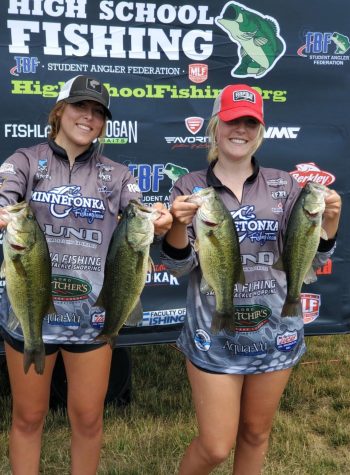
After a morning full of scrambling to make sure you did everything necessary, you still don’t get to relax. When you arrive at a spot you need to be up and fishing right away. Some fishermen stay at one spot for hours on end, just waiting for that perfect bite. Some go from spot to spot quickly so they can get many bites. Fishing is happening constantly from spot to spot picking up fish from here to here. Some may stop and dig in the cooler for a quick snack, or drink around noon but then it’s right back to fishing.
The last few hours are gruesome attempts to get a couple more good bites. “In the last couple of hours the time flies as we try so hard to get some more fish” Aiden says. Teams scramble while the Student Angler Tournament Trail (SATT) committee sets up the award ceremony. In the last 30 minutes teams accept their defeat or soak up the joy of doing well. Boats head back to the awards ceremony, trucks pull the boats out of the water, and teams gather around the stage.
The SAT gives out prizes and awards. “ It’s fun to see who all does well, and if you know any of the winners” Aiden said when asked about award ceremonies. After awards are handed out teams mingle, eat and pack up the boats and cars. Teams head out, either on a bang or eager to win the next. Aiden ends his day doing what he loves, sleeping “After a long day on the lake I have a peaceful ride home, then I jump into bed”.
Why bass are the best fish to catch
According to my survey out of 30 MHS students, 83.3% of those students preferred fish to catch is a large mouth bass. Bass are a unique fish, and there are multiple types of bass and each one is an awesome catch.
The most popular bass is a largemouth bass. This type of bass is a fish with stripes and dots down the side, they are a grassy green color, and they can have massive mouths. These fish are very intelligent, and know what lures to avoid, making it a fun catch when finally reeled in.
These bass are also known for their excellent vision. Largemouth can see in every direction when lurking through the waters, and their sight only gets better over the years. Making it extremely hard to finesse these fish.
Largemouth bass sizes do vary around the globe and the country. In southern parts of the US these fish can average up to 10 pounds, and in the northern states the average tends to be 4 pounds.
After knowing all these awesome bass facts, you might think these fish are almost impossible to catch, they are hard, but when you do catch these monsters it’s a true reward. 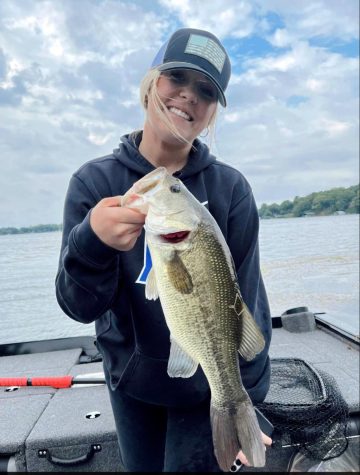
Removing fishermen from the food chain
As many of us know, fishermen live at the top of the food chain. They catch fish that they then sell to other people or eat themselves. But have you ever wondered what it would be like if we took fishermen out of the food chain?
According to Our World Data, 200 million tons of fish are caught each year, and almost all of them are killed for food resources. Even when people are catching and releasing, most of the time the fish ends up dead, and the fish that don’t end up dead get injured. So what would happen if we took fishermen out of the picture? Would more fish live or would the chain fall to pieces?
Most of the time when you remove one element from the food chain, it all gets switched up. In this case, removing fishermen would make larger fish be at the top of the food chain. Since they don’t have any species above them their population will grow and they will need more food resources, causing them to eat smaller fish which damages the whole chain. Because of these issues we cannot remove fishermen from the food chain, we can only put more restrictions and limitations on fishing.
